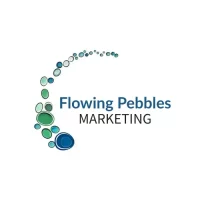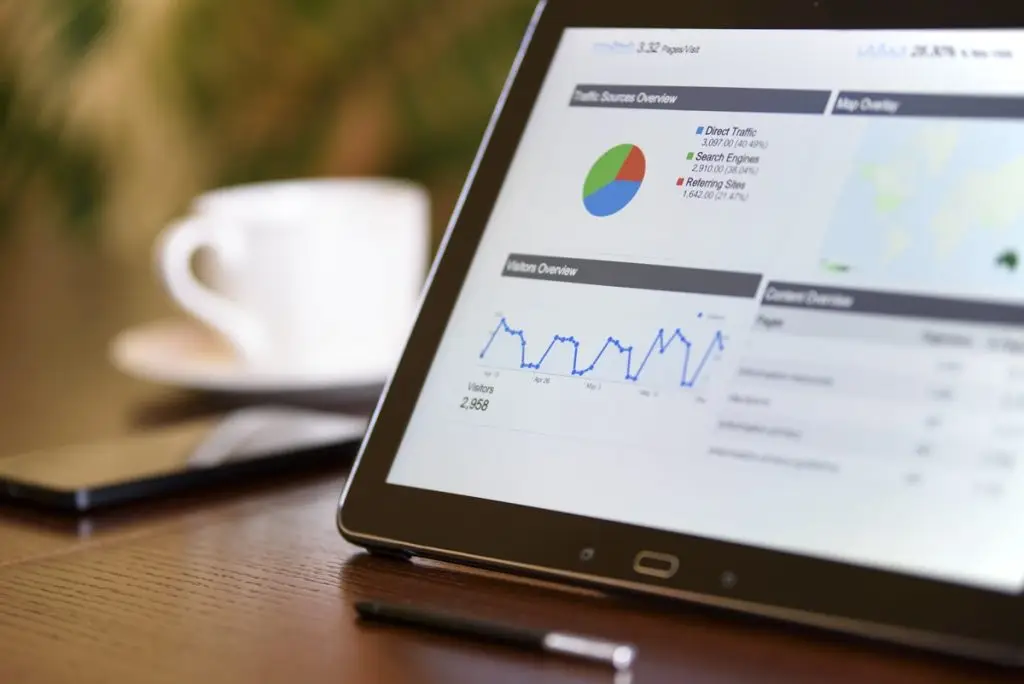Ever wonder why your content isn’t connecting, even though you’re showing up online, posting regularly, and running ads? It might come down to understanding the real difference between content marketing vs digital marketing.
Many small business owners blur the line between the two. As a result, their marketing feels busy but not effective.
Meet Sarah, the owner of a small boutique in her local town. She’s passionate about her products and has a clear vision for her brand. Knowing that social media is key to growing her business, she starts posting every day. She highlights new product arrivals, shares limited-time discounts, and promotes flash sales. Her goal is simple: generate quick sales.
But after months of consistent posting, Sarah feels frustrated. Her follower count has stalled, engagement is minimal, and despite her efforts, sales haven’t improved as she’d hoped.
A Common Small Business Owner’s Story
Like many small business owners, Sarah’s story is common. In the rush to boost short-term sales, however, she’s overlooked a critical piece of effective marketing—the balance between immediate sales tactics and long-term relationship-building. By chasing quick wins, she’s missing the strategy she needs to nurture growth and build lasting connections with her audience.
In our last post, Branding Basics for Small Business: Finding Your Unique Voice and Vision, we talked about defining your brand identity. Sarah’s done that work. She knows who she is and what her brand stands for. But, now she’s facing the next challenge: connecting that brand to her audience in a meaningful, measurable way.
This is where the distinction between content marketing vs digital marketing becomes crucial. Too often, business owners dive into digital marketing without understanding how content marketing fits into the bigger picture.
In this post, we’ll break down the key difference between content and digital marketing. Understanding how the two work together is the secret to creating content that truly connects.

Content Marketing vs Digital Marketing: What’s the Real Difference?
To understand the difference between content marketing and digital marketing, first recognize that content marketing is a type of digital marketing. Digital marketing encompasses a broad range of online marketing tactics to promote products and services. Meanswhile, content marketing is more specifically focused on a strategy to attract, engage, and connect with an audience.
As a simple analogy, digital marketing is like fishing with a big net. It covers a lot of water and channels. Content marketing is like fishing with bait. You’re offering something valuable to attract the right fish.
The Many Tactics of Digital Marketing
Digital marketing includes everything you do online to promote your business. It includes running Facebook ads, sending emails, showing up on Google search, or even texting your customers.
In essence, digital marketing is about using technology and the internet to connect with potential and existing customers at various stages of the buyer’s journey. It combines both paid and organic tactics, including:
- Online advertising
- SEO (Search Engine Optimization)
- Email marketing
- Affiliate marketing
- Website design and optimization
- Social media advertising
These tactics are designed to get your business in front of the right people and drive measurable results.
The Approach of Content Marketing
Content marketing is a strategic approach to digital marketing that involves creating useful, valuable, and relevant content to attract and build relationships with your ideal audience.
This content takes many forms and is shared through different digital channels, including:
- Written text (like blog posts, articles, or website copy)
- Graphics and visuals
- Infographics
- Videos
- How-to guides
- Social media posts
Where digital marketing uses a wide range of tools and tactics, content marketing focuses on what you say and how you say it.

How They Overlap (And Why That Matters)
Though distinct, consider how content and digital marketing frequently overlap and support one another. A successful digital marketing campaign often relies on strong content, whereas content marketing needs digital channels to reach its audience.
For example, SEO and social media need content. Without valuable content, there’s nothing to optimize for search engines. Platforms like Instagram or LinkedIn thrive on shared content. In addition, email marketing, landing pages, and ad copy rely on compelling content.
A well-executed content strategy enhances the performance of digital campaigns, while digital tools amplify the reach of content. That’s the connection Sarah was missing, and the one most small business owners overlook.
Key Characteristics
To further understand how each is used, it is important for businesses to recognize their key characteristics to build a successful online presence.
Goals And Objectives
Both strategies developed for content and digital marketing should be aligned with a company’s goals, but in different ways.
Digital marketing is used to get people to buy or engage. It seeks to increase visibility and reach with short-term goals that relate to products and services. Companies anticipate immediate action that produce measurable results. For example, your company might set a goal to generate qualified leads and increase product sales with the objective of running paid advertising and Pay-Per-Click (PPC) campaigns.
Content marketing aims to connect with an audience over time. Companies typically consider long-term goals, which include building trust and relationships through informative and engaging content. So, an example of a company’s goal might be to increase brand authority with the objective of adding case studies on a website.
Strategy and Approach
When determining your strategy, think about a game plan. Your approach would be how you are going to implement the strategy.
Digital marketing focuses on using both organic and paid methods to get quick results and conversions with strategic campaigns. Additinoally, it involves multiple tactics to achieve rapid visibility, increase lead generation, and drive traffic. Examples include paid search campaigns, social media advertising, email newsletters, and website optimization.
So, say a company wants to increase website traffic. A digital marketing strategy might be to run Google Ads and social media campaigns to drive immediate clicks. An approach might be to launch a PPC campaign targeting high-volume commercial keywords.
Content marketing emphasizes a single strategy for organic growth that nurtures trust and builds relationships over time. It focuses on creating and distributing different formats of content like blog posts, videos, and infographics to provide value to the audience. For the strategies to be successful long-term, a company strives to produce consistent, high-quality, and relevant materials.
Using the same goal above for increasing website traffic but with content marketing, a strategy might be to publish SEO-optimized blog posts. An approach might be to create a blog series to build organic traffic over time.
Recognize that there is a key difference here between content marketing vs digital marketing. You would use both outbound and inbound approaches in digital marketing to get the audience interested in your products and services. You would use inbound approaches in content marketing to pull audiences in with valuable content.
Tools And Platforms
Another key distinction between the two strategies is in how they use tools and platforms.
Digital marketing uses tools for data tracking and analysis, targeting and automation to help drive performance. You might already be using some of the popular tools, like Google Analytics, Facebook Ads manager, and lead generation software. The key is finding the tool that best fits your business’ needs for collecting data and analyzing the effectiveness of the platforms your company uses—from social media to search engines and from Yelp to mobile ads.
While tracking and analysis metrics, such as for website traffic, are also important for content marketing, so are tools for creation and distribution to increase engagement and information sharing. Some of the popular tools you might use include ChatGPT, Grammarly, Canva, and organizational software to enhance productivity and performance. Many of the tools integrate with platforms like Facebook, YouTube, WordPress, and MailChimp.

Choosing the Right Strategy for Your Business
Understanding the difference between content marketing vs digital marketing helps you make informed business decisions. So, how do you decide between which one you need?
- Choose digital marketing when you need rapid, measurable results and have the budget to invest in reach and visibility.
- Choose content marketing when you’re aiming to build a brand, develop trust, and generate sustainable organic traffic.
But the truth is you need to choose one over the other. The two strategies serve different purposes. They offer unique benefits and, when used together, can amplify your marketing efforts to create content that connects.
Most successful businesses use a combination of both. They use content marketing to engage and educate their audience, and digital marketing to promote, amplify, and convert that engagement into revenue.
Consider which strategy or combination of strategies will work best for your business based on your industry, goals, and resources. The key is aligning your message (through content) with your methods (through digital channels) so your marketing feels consistent, intentional, and connected.
Need help deciding which strategy is best for your company’s needs? At Flowing Pebbles Marketing, we can review your content marketing and digital marketing options in more detail and develop a plan to meet your goals. Contact us to schedule a free initial consultation.



